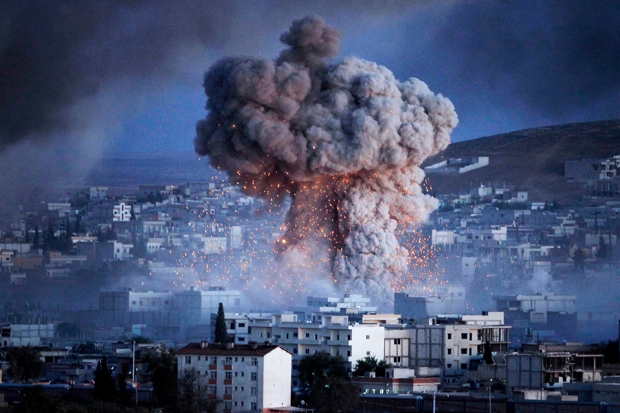It’s not perhaps the first thing you notice in the Labour manifesto, but one interesting commitment by the party is to establish a Global Envoy for Religious Freedom. It may or may not be an indication that Douglas Alexander reads The Spectator – which suggested some time ago that Britain should, like Canada, have a roving envoy to support specifically freedom of religion – but it’s a good move. Given the remarkable insouciance of the Coalition government on the issue of the persecution of religious minorities and Christians in particular – there was no obvious British reaction, for instance, to the consistent string of attacks on innocent Christians in Pakistan in the last five years, certainly not in terms of a diminution of aid – this is an implicit rebuke to the Tories.
But just to show no fear or favour – and I expect the balance was quite deliberate – the party is also pledging to appoint an International LGBT Rights Envoy. In one sense, that’s fine. Upholding the rights of gay people to manifest their sexual orientation without fear of persecution is to do with fundamental freedoms, but it’s still a big ask, especially in the Islamic world. But the one caveat is that Britain shouldn’t assume that everyone should simply replicate the UK approach to the issue, viz, to require that gay couples must have parity of access to adoption (this was the basis on which Labour, with Tory support, obliged Catholic adoption agencies to close) and to gay marriage. This constitutes a kind of intolerance of its own. Individuals and countries may not want to accord gay partnerships parity of esteem with heterosexual marriage – on the simple basis that the latter institution is grounded on the wellbeing of children, who flourish best with a father and mother – and I’d say myself that Britain would be on shaky moral ground if it tried to force them to. But that still leaves plenty of gay rights to campaign for.
Mind you, the religious affairs envoy would have his work cut out right now, given the condition of Christians in the Middle East, a matter on which only Alistair Burt in the last government seemed particularly concerned. Last night’s brilliant documentary by Jane Corbin for the BBC, Kill the Christians, pointed out the glaring reality, that Christianity is on the point of extinction in the region where it came into existence, the Middle East. The advance of Islamic State is just the latest upsurge of Islamic radicalism which routinely expresses itself by persecuting minorities, notably Christians. And Christians, from Bethlehem to Mosul, are mostly educated enough and prosperous enough to be able to make a getaway from the region, thereby aggravating the problem. In this grim scenario, only the Kurds stood out in the region as defenders of pluralism and of Christians. One Iraqi priest called on the West to aid the exodus and grant visas to the Christians of Nineveh. I’d say, do nothing of the sort. Make them stay, but don’t let’s stand by and watch their annihilation. Getting to grips with Islamic State – not least through the deployment of special forces and getting stuck into the bombardment of IS – is the more obvious, more moral course.
Usefully enough this would be to the benefit of gay people too – Islamic State deals with homosexuals in Raqqa by throwing them from high buildings, then finishing them off by stoning. Tackling IS is rather more to the point even than special envoys. And it would give some sort of point to the defence spending we’re all so worked up about.







Comments